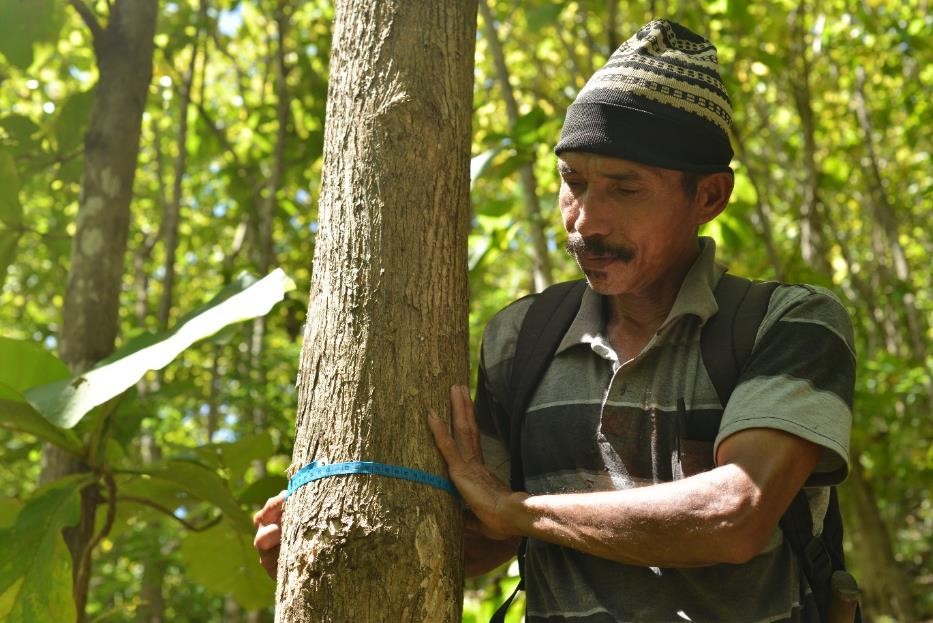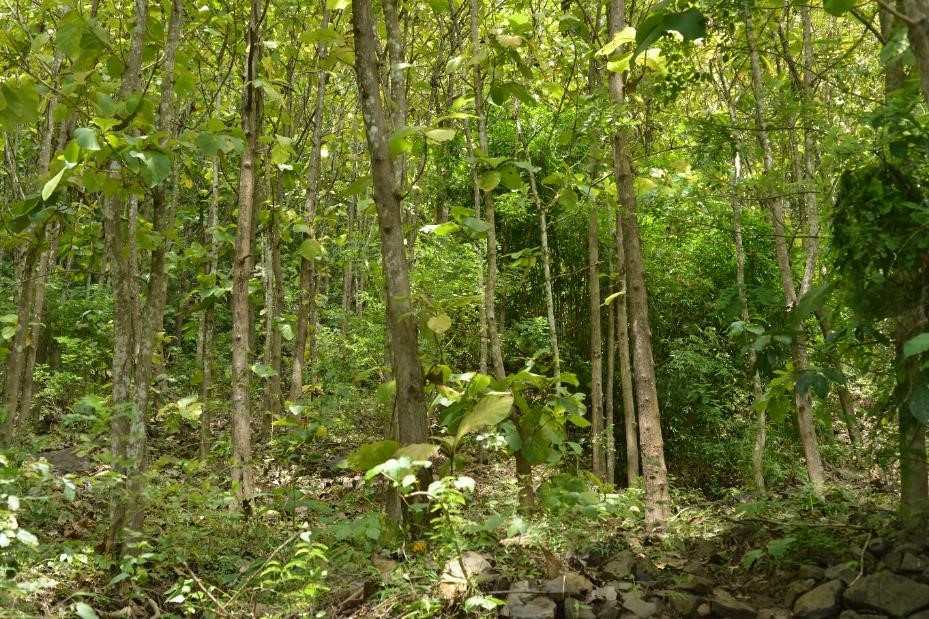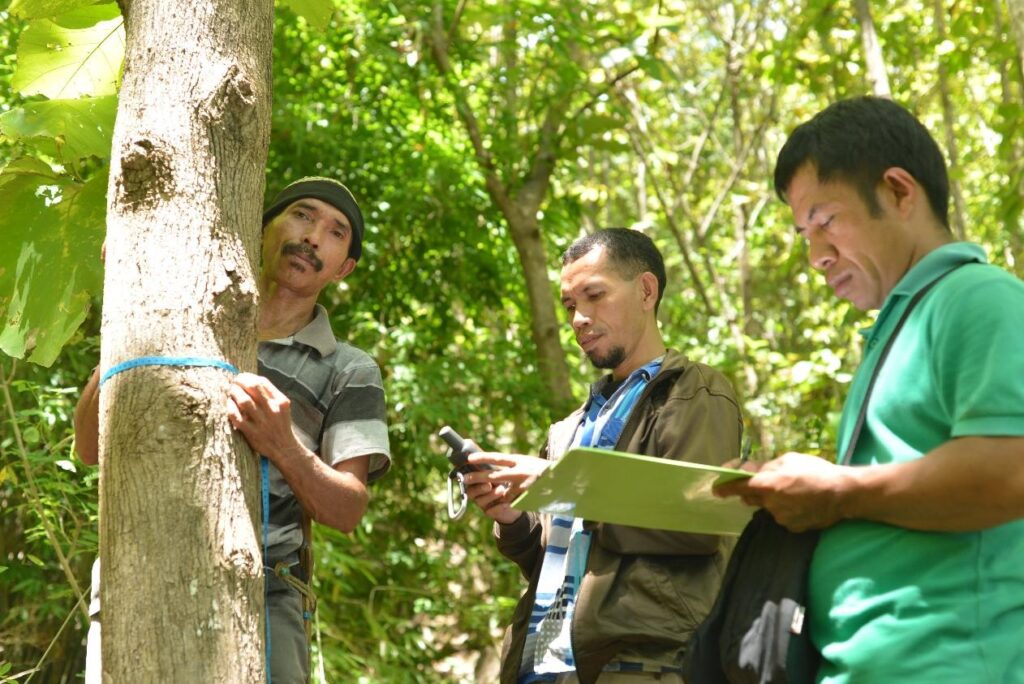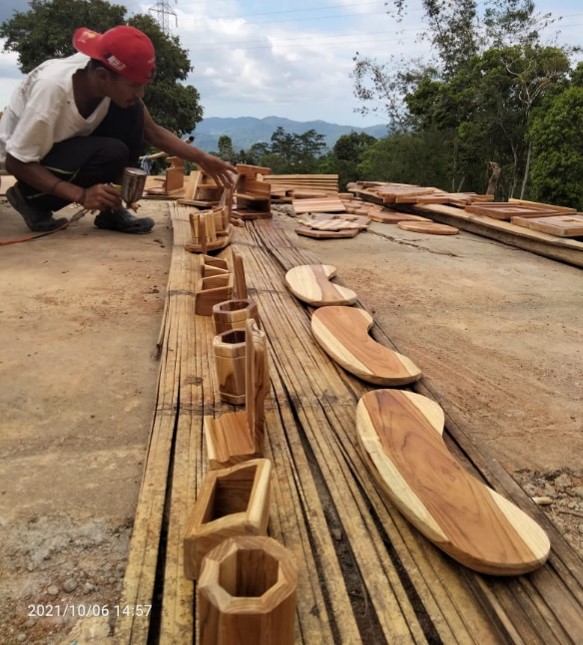How sustainable teak timber production is benefiting Indonesian forest

Around the world, millions of people depend on forests for their livelihoods and survival. On the International Day of Forests, we explore how sustainable forest management is key to protecting forests whilst ensuring that communities can benefit from forest resources for generations to come.
Whether we live in a forest or miles away, we all depend on forests for our survival, yet illegal and unsustainable logging is still rife around the world. Each year sees an estimated 10 million hectares of forest lost, much of which is driven by global demand for wood, paper, and crops. Globally, the forest industry generates over $186 billion in trade of wood products. Many rural communities are dependent on wood for shelter, food, and income, and it can also be a more environmentally friendly alternative to concrete and plastic if sourced responsibly. Through the sustainable management of forests, we can strike the balance of ensuring forests are protected, whilst also allowing millions of people worldwide to financially benefit from the resources found within them.
In Indonesia, around 50 million people depend directly on forests for their livelihoods. The country boasts around 3% of the world’s forests that need to be protected to secure the opportunity for healthy livelihoods. In Mbeliling, a vital and rich landscape, smallholder farmers make a living through coffee, cocoa, clove and cashew nut production, growing rice crops which support the 40,000 people living across 36 villages in the area, and teak production.
Teak is a valuable tropical hardwood renowned for its durability and is used for items from furniture and frames to buildings and boats. Since being introduced to the country in the 16th century, Indonesia has become the second largest exporter of teak. Millions of people in Indonesia depend on teak as an important income, and whilst a commercial product planted on vast scales, if managed in environmentally sustainable ways, it can support wildlife as well as people.

The Mbeliling landscape is a perfect example of how people and wildlife can depend on the same habitats for their survival. However, across Indonesia, increasing populations, farming and illegal logging are putting too much pressure on forests. One in ten people in the country are living in poverty, which is exacerbating these threats as exploiting nature for quick income is prioritised over sustainability.
With this in mind, Burung Indonesia (BirdLife Partner) are working with local communities to ensure that forest management is sustainable. By identifying the threats to both the forest and people’s livelihoods, agreements on how to manage the forests are made. This is an inclusive process, enabling communities to select their own committee to oversee the agreement which is recognised by government. Burung Indonesia also support the communities through education about conservation, economic development, and advocacy.
You may be wondering if and how this approach has benefitted the community and forests. Monitoring in the area has shown reduced threats to wildlife, particularly birds, and the community have a better understanding of how ensuring their environment is healthy is beneficial not just for nature but for them too.

This collaboration with Burung Indonesia has also allowed teak farmers to ensure that their forest management is sustainable, which is a positive step toward a thriving future for the forests and local people. According to Paul Toron, Secretary of the Timber Industry Association of West Manggarai District, “since this collaboration started, our network has received a lot of valuable information about timber certification and legality instruments which we are committed to supporting in order to help prevent illegal logging”.
Community teak groups have been able to develop tree seedling nurseries of teak and other species such as durian and avocados. Soil and water conservation techniques have been implemented on 22 farmers’ land, and more efficient pruning and tree maintenance technique have been employed. The rationale for these activities is to help shift forest management away from solely timber-based single products to an ecosystem-based approach, that accounts for biodiversity and habitats alongside industry.
It’s also important to ensure that the communities can successfully export their product, so the project has also focused on improving the timber and its market value. Timber processing machines have been installed, and job training and protective equipment provided. Products are made from excess timber and furniture and promoted for sale on social media to cut down on waste.
Burung Indonesia’s work promoting sustainable forest management means that forests in Mbeliling can remain healthy and resilient, able to provide for people and wildlife for generations to come.
Header image: Teak timber inventory Poco Golo Kempo village © Burung Indonesia
This article is part of BirdLife International’s Asia-Pacific Forest Governance Project.
More about the project
Title: Strengthening non-state actor involvement in forest governance in Indonesia, Malaysia, the Philippines, and Papua New Guinea
Lead Partner: BirdLife International
National Partners: Burung Indonesia (BirdLife Indonesia); Malaysian Nature Society (BirdLife Malaysia); Haribon Foundation (BirdLife in the Philippines); Tenkile Conservation Alliance (Papua New Guinea).
Training and Technical Partners: University of Papua New Guinea; Centre for International Development & Training
Funded by: European Union

“My interaction with the teak farmers gave the confidence that forest sustainability is in the safe hands of the local farmers and communities who possess the local knowledge for sustainable forest management. Their livelihoods are connected with the precious forest resources and sustainable harvesting will help to ensure a sustainable future for them.”
Dr Hum Gurung – Regional Project Manager
Stay up to date
Sign up to receive the latest bird conservation news. You’ll also receive updates about our projects, science and other ways to get involved including fundraising.
Thank you for your support, we are committed to protecting your personal information and privacy. For more information on how we use your data, please see our Privacy Policy. You can unsubscribe from emails at any time by using the link in the footer of any email from us.

